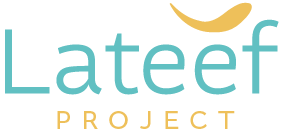The History of The Lateef Project
The Early Years
In the last 10 Days of Ramadan in 2010, The Lateef Project (The LP) started offering Islamic counselling. At that time the only similar service that was available was the ISSA Islamic Social Service Association based in Wales. A service that provided a combined CBT Islamic approach to working with mental health and underlying concerns, and the Muslim Women’s Helpline a telephone-based advice and counselling service that also used a similar approach to Islamic counselling.
The Lateef Project was the first free Islamic counselling service, working in partnership with the health service, addressing common mental health problems. Initially the service was designed as an assessment referral service as a way for Muslims to access appropriate NHS care. But from the start it was clear that:
Muslims came to The Lateef Project for psycho- spiritual mental health therapeutic counselling in preference to NHS CBT services.
Muslim clients preferred to be in Islamic counselling rather than CBT and so were not looking to be referred to on the NHS provision.
Muslims in NHS care were being referred by NHS practitioners to The Lateef Project.
The Lateef Project was a primary care counselling working with Muslims across Birmingham, using Islamic counselling, and working in community languages from the beginning.
With a referral route between The Lateef Project and both primary and secondary mental health care, this was in partnership with the NHS and initially provided initially 2 days a week by our first two volunteers. Though there was little initial advertising without any budget, the demand for the service was established by the trust that was built in the community of a confidential supportive mental health service that understood the distress experienced by people living their understanding of the Islam in the difficult circumstances of their lives. Clients experienced benefit, from talking through and reflecting upon their difficulties in safety and confidentiality, and in an understanding of their faith and the role it played in making sense of the experiences of their lives. Very soon we not only increasing the number of or days opening, (within a year we went from 2 days a week to 6 days a week and 3 evening) our counsellors (5 volunteers by December) but also widened our range of service languages.
Read our next chapter here.
